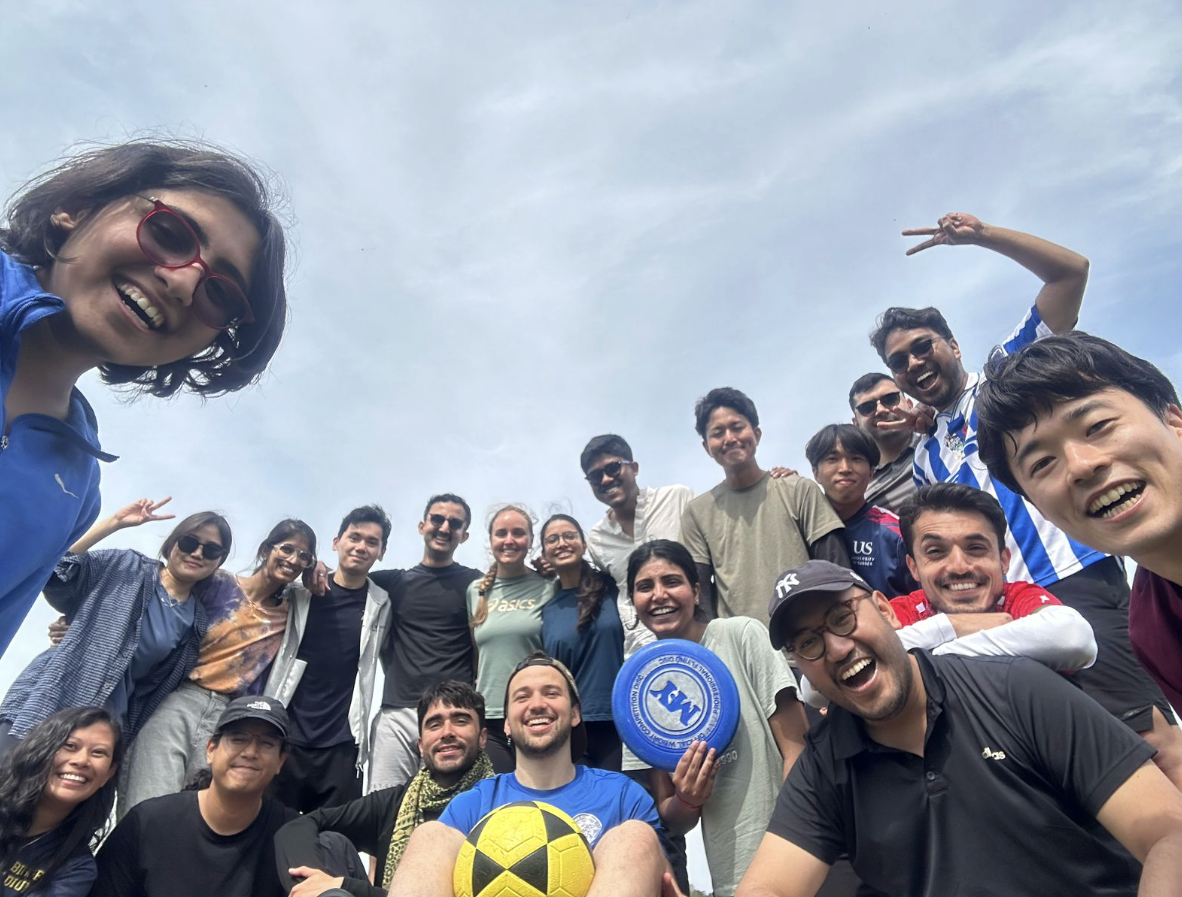Sports have a magical element, they bring people together. People from diverse backgrounds, experiences and priorities focusing on only two things: How to work in a team and how to win while working in that particular team. Ultimate Frisbee happens to be one of the sports that are not universally very popular. You might have seen or heard of the heated up “no contact” sport. But it’s not among the games that are broadcast as much as cricket or football. Regardless of its limited familiarity in many parts of the world, however, the sport is loved and admired by many.
Back in October 2024, Riya Behl, an Institute of Development Studies student, who previously competed in national frisbee tournaments in India, was looking for a casual setting to play in Brighton. As a result, she decided to message her cohort’s group chat to ask whether anyone’s interested in learning to play Ultimate Frisbee.In their first meet up, only four people showed up. The first game was supposed to take place with a frisbee disc that Riya borrowed from her friend which she unfortunately lost. Later on, however, Lucas Miranda, a Brazilian MA student got a frisbee from a giveaway in Stanmer Park. That’s how it all started. In the span of a month, enough people started to show up. As time passed, there were times when more than 25 people showed up on the weekends to play. This marks the creation of the Frisbeegulls, a group of people who play frisbee in Stanmer Park every week.
What makes frisbee so convenient to play is that you don’t need many resources to play the game. All you need is a frisbee disc and a space to accommodate people. This also makes the sport affordable. The game is very gender and age neutral but it’s not just the game that is so inclusive and versatile. There were also regular hangouts, post game potlucks, birthday celebrations and farewells. Emilio Bunge Gonzalez, an MA Development Studies student who participates in the frisbee matches almost every week, said that he looks forward to the weekend throughout the week to play frisbee. The sport has become a common platform for the group to meet each other, play a sport that they mutually love and enjoy each other’s company regularly.
The game is very self regulatory. There’s no referee, so it’s the players who hold each other accountable or call foul. This builds mutual respect for each other beyond their respective teams. After the end of every game there’s usually a spirit circle. In a spirit circle, the teams come together to give feedback to each other, most of which tend to be positive. This lifts up the team spirit. Spirit circle also builds trust among people to give and receive positive feedback and constructive criticisms. Amy Morgan, who’s studying Food and Development shared that spirit circle helped her with being open to receiving criticisms and to appreciate compliments more. As the game is very self regulatory, the spirit circle plays its role in conflict resolution among the players. There is not one specific person among the frisbeegulls who usually take the responsibility of organising the matches. Anyone who is interested in organising a match can text in the group chat to play and others will show up.
Frisbeegulls say that frisbee has helped them to build connections, hone up their interpersonal communication skills, show leadership, work in teams and to be open to trying anything new at any point in life. The motive behind writing this particular story was to show how it only took just one simple text in one group chat to form a community that enjoy each other’s company and a beautiful sport. Introducing Ultimate Frisbee as a team building exercise in different institutions can ensure trust, collaboration, transparent communication and conflict resolution.
Another article you may enjoy: https://thebadgeronline.com/2024/04/society-spotlight-zumba/

